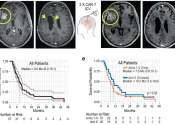Sperm formation step could hold clues to male contraception
A cross-college collaboration is opening new doors in the study of male infertility by breaking down a key step in sperm formation. Isolating the intricacies of meiotic sex chromosome inactivation (MSCI), will now enable ...
Mar 12, 2024
0
16









